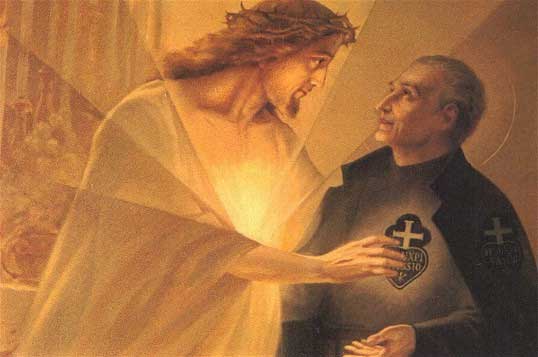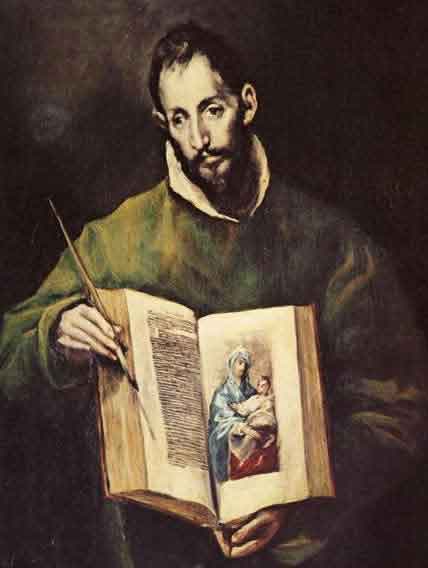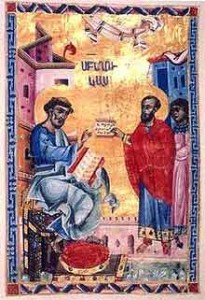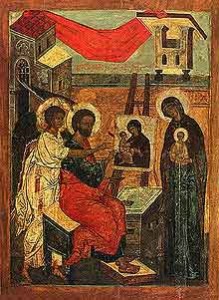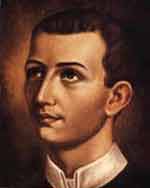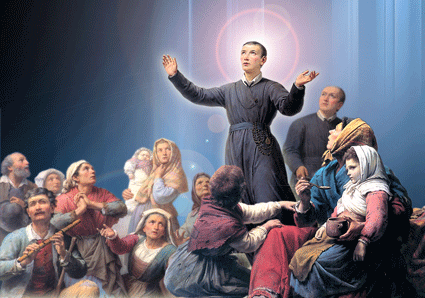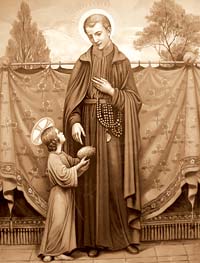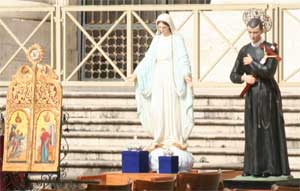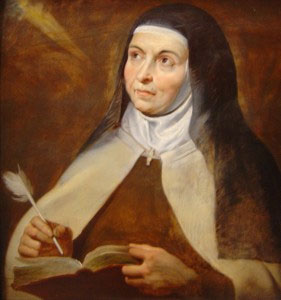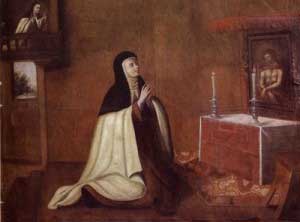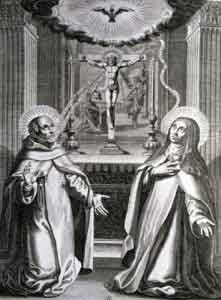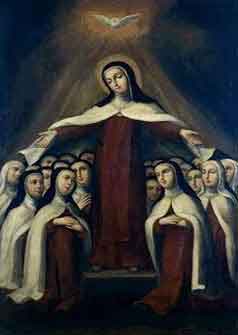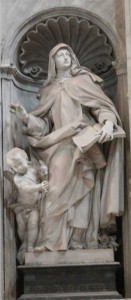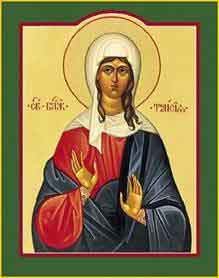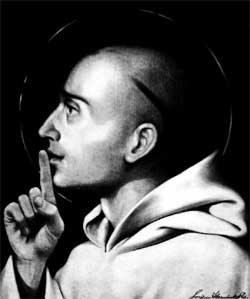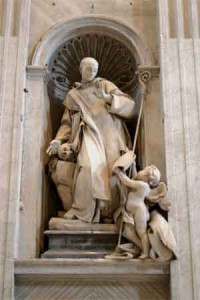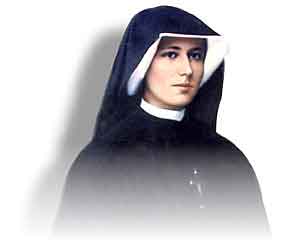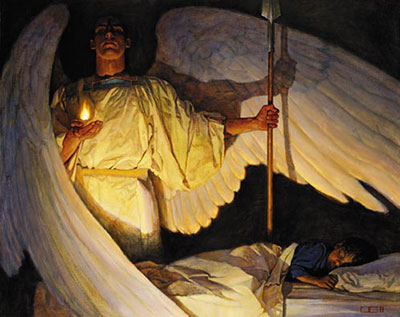St. Paul of the Cross quotes:
When you feel the assaults of passion and anger, then is the time to be silent as Jesus was silent in the midst of His ignominies and sufferings.-St. Paul of the Cross
It is very good and holy to consider the passion of our Lord, and to meditate on it, for by this sacred path we reach union with God. In this most holy school we learn true wisdom, for it was there that all the saints learned it.-St. Paul of the Cross
Therefore, be constant in practicing every virtue, and especially in imitating the patience of our dear Jesus, for this is the summit of pure love. Live in such a way that all may know that you bear outwardly as well as inwardly the image of Christ crucified, the model of all gentleness and mercy. For if a man is united inwardly with the Son of the living God, he also bears his likeness outwardly by his continual practice of heroic goodness, and especially through a patience reinforced by courage, which does not complain either secretly or in public. Conceal yourselves in Jesus crucified, and hope for nothing except that all men be thoroughly converted to his will.-St. Paul of the Cross
I want to set myself on fire with love…I want to be entirely on fire with love…and I want to know how to sing in the fire of love.-St. Paul of the Cross
Look upon the face of the Crucified, who invites you to follow Him. He will be a Father, Mother–everything to you.-St. Paul of the Cross
I hope that God will save me through the merits of the Passion of Jesus. The more difficulties in life, the more I hope in God. By God’s grace I will not lose my soul, but I hope in His mercy.-St. Paul of the Cross
Christ Crucified is a work of love. The miracle of miracles of love. The most stupendous work of the love of God. The bottomless sea of the love of God, where virtues are found, where one can lose oneself in love and sorrow. A sea and a fire or a sea of fire. The most beneficial means of abandoning sin and growing in virtue, and so in holiness.-St. Paul of the Cross
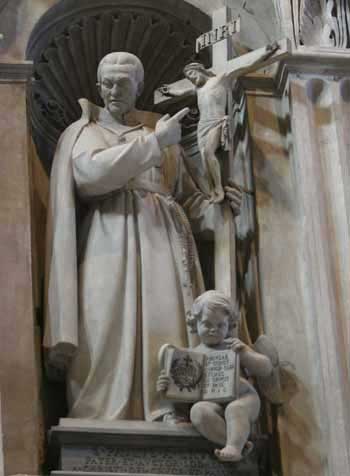 At holy Communion I had much sweetness. My dear God gave me infused knowledge of the joy which the soul will have when we see him face to face, when we will be united with Him in holy love. Then I felt sorrow to see Him offended and I told Him that I would willingly be torn to pieces for a single soul. Indeed, I felt that I would die when I saw the loss of so many souls who do not experience the fruit of the Passion of Jesus.-St. Paul of the Cross
At holy Communion I had much sweetness. My dear God gave me infused knowledge of the joy which the soul will have when we see him face to face, when we will be united with Him in holy love. Then I felt sorrow to see Him offended and I told Him that I would willingly be torn to pieces for a single soul. Indeed, I felt that I would die when I saw the loss of so many souls who do not experience the fruit of the Passion of Jesus.-St. Paul of the Cross
Oh my good God, how gentle You are! How sweet You are! Oh dear cross, I embrace you and press you to my heart!-St. Paul of the Cross
May the mercy of God grant you still more time in life so that you can become completely crucified with the Divine Spouse by means of mystical death, death to everything that is not God, with a continual detachment from all created things, wholly concealed in the divine bosom of the celestial Father in true inner solitude. Do not live any longer in yourself, but let Jesus Christ live in you in such a way that the virtue of this Divine Savior may be resplendent in all your actions, in order that all may see in you a true portrait of the Crucified and sense the sweetest fragrance of the holy virtues of the Lord, in interior and exterior modesty, in patience, in gentleness, suffering, charity, humility, and in all others that follow. -St. Paul of the Cross

